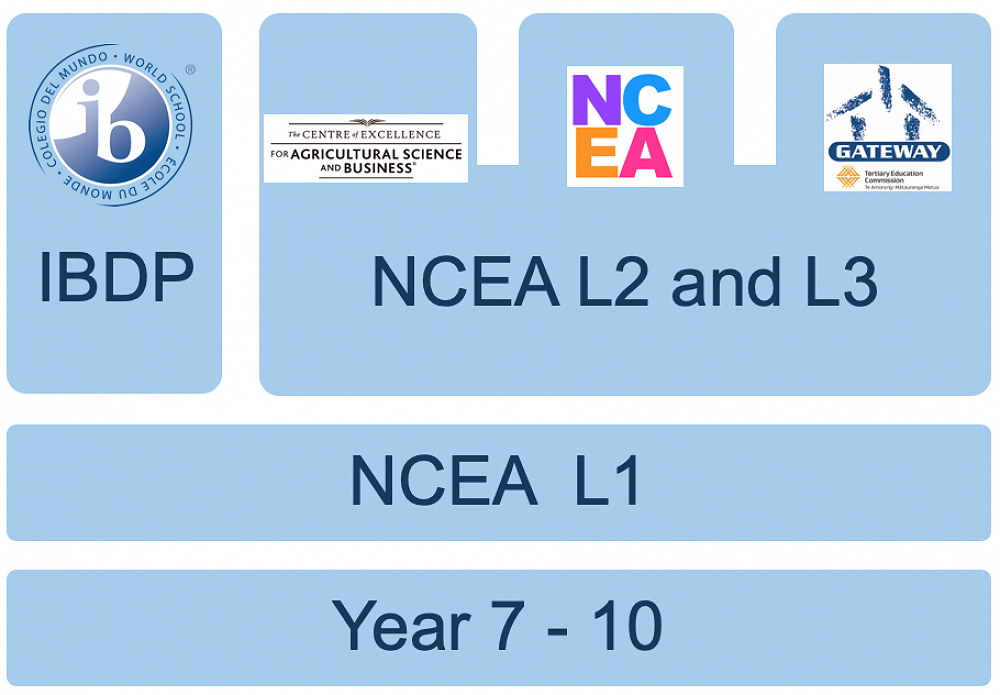The senior years at John McGlashan College are epitomised by choice. There are exciting and rewarding options available for everyone. Not only are there a wide range of qualification pathways that can be taken, but within each, there are also many options and subjects to select from.

The students that we have seen coming through the junior school (years 7-10) at the College are well placed to take the next developmental steps, that is, their national and/or international qualifications. Content knowledge, conceptual understandings, contextual learning, and key skill competencies have been planned for and designed with NCEA and the International Baccalaureate Diploma Programme in mind. The senior school is an extension of the high quality, innovative teaching available in the junior school.
Students are encouraged at all year levels to familiarise themselves with the choices they will need to make regarding future courses and career pathways. Parental involvement with this process is vital and we encourage your input at all times to assist us in finding the best possible pathway for your son.
As you consider your pathway choices. We encourage you to:
Think of your strengths:
Review your signature strengths with the thought of how you learn best and which programs will allow you to best develop your strengthsPlay to your strengths:
You do not need to take NCEA, Agri-Science, Gateway or IB just because everyone else does. You want to select courses that will both challenge you and allow you to demonstrate your talents.Look to the future:
If you have a specific career in mind, you need to choose subjects based on your career interests and research, what courses do you NEED to take to get yourself in the best position, not just for University admission, but for your potential career. At the College, you can easily prepare for several diverse career pathways.Keep options open:
Take a wide variety of courses that keep many avenues open, especially if you are not sure what you intend to study after high school.Think two years:
IB is a two-year commitment, but even if you are taking NCEA or Agri-Science, you should also have a two-year plan.Make yourself as competitive as you need to be (and can handle):
Highly competitive universities expect students to take either the IB Diploma or a rigorous NCEA course in their high school career.Find balance:
You need to have a variety of courses that give you joy, that challenge your creativity as well as your analytical side, that also give you a moderate workload that challenges you.Talk to your current teachers and coordinators:
Simply put, no-one knows you better in an academic setting than they do. They see you at your best and worst. They may even see glimpses of greatness that you should pursue—ones you might not even be aware of. Seek their advice about courses and levels of courses. Listen carefully to what they say, if they are not recommending it, you need to ask yourself, why would I want to override it?See the big picture: Your courses are only the beginning. Your life is not just your classes. It can be difficult to play high-level sports for multiple teams, do NCEA/IB, be a school leader and sing in your rock band while enjoying your friends and spending time with your family.
Here are some dates to put on your calendar:
- Year 10 Career Interviews: Monday 16th Sept
- Year 11 Career Interviews: Thursday 19th Sept
- Thursday 26th Sept:
- Gateway & Agribusiness Seminar (Year 10-12) 6:15pm - 6:45pm
- Course Selection Evening (Year 10 - 12) 7:00pm - 8:30pm
- Friday 27th Sept:
- Gateway & Agribusiness Seminar (Year 10-12) 1:15pm - 1:45pm
- Course Selection Afternoon (Year 10 - 12) 1:30pm - 3:00pm
If you have questions about career choices or curriculum pathways, then make an appointment with Rachael Gardiner, the College counsellor or Brendan Porter, the IBDP coordinator.

 Open Event Registration - Interested in enrolling?
Open Event Registration - Interested in enrolling? Employment opportunities - click if you're interested in working at McGlashan.
Employment opportunities - click if you're interested in working at McGlashan.